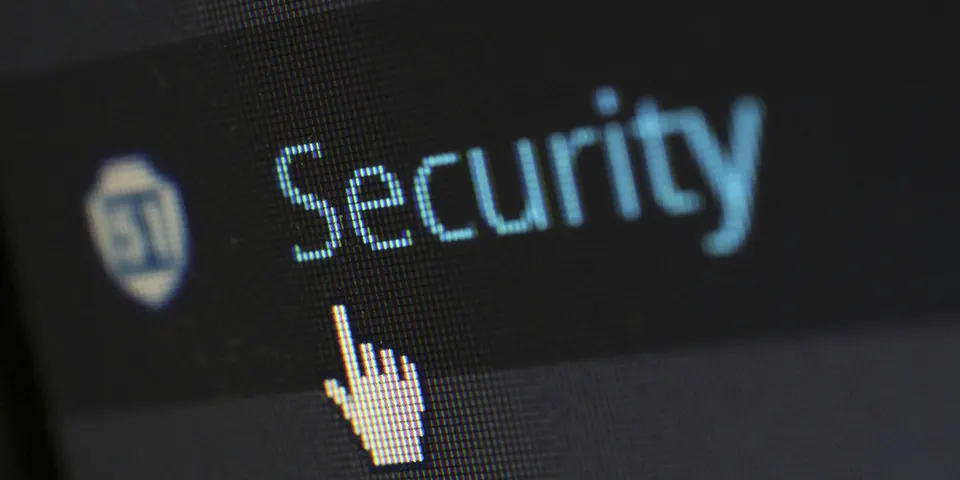Cyber Security
Do I need cyber security protection?
Yes, having cyber security protection for your business is essential. Cyber attacks can lead to money loss, the theft of important information, and the harming of your company’s reputation. To stay safe, use tools like firewalls and antivirus software and educate your employees about cyber threats. Also, part of the cyber security audit and plan to regularly update your software and back up important data to lessen the damage if an attack happens. Talking to Business IT Support to understand your business’s unique risks and needs is a good idea.
What is Cyber Security?
Cyber security keeps computers, networks, and digital info safe from bad guys. It’s like having locks on your doors to stop burglars. We use different tools and rules to ensure our digital data stays private, accurate, and available when needed.
Cyber security is like a shield that protects different parts of our digital world, like our internet connections, apps, and essential information. We use things like special locks (firewalls), secret codes (encryption), and security guards (antivirus software) to keep out the bad guys who try to break in and cause trouble.
Additionally, incorporating Endpoint Detection and Response (EDR) is like having bodyguards for our devices, like computers, phones, and tablets. They watch for bad guys trying to sneak in and cause problems. EDR tools help us spot these threats quickly, react fast if there’s trouble, and give us more control over our devices. They team up with other security tools to protect our digital stuff from cyber threats.
Why Cyber Security is Important
In today’s where businesses rely heavily on digital systems and online transactions, cyber security is like a shield that protects a castle. Here’s why it’s so important:
Protects Against Cyber Attacks: Like a shield, cyber security measures, including tools like Office 365 Backup, defend against hacking, malware, phishing, and ransomware, keeping valuable information safe.
Prevents Data Breaches: Acting as strong locks, robust cyber security prevents unauthorized access to sensitive data, preserving customer trust.
Ensures Smooth Operations: By safeguarding against cyber threats, cyber security keeps business operations running smoothly, minimizing downtime and service disruptions.
Ensures Compliance: Following regulations like GDPR or HIPAA is crucial. Implementing cyber security measures ensures compliance and avoids legal consequences.
Types of cyber security threats
Cyber security threats are constantly evolving as technology advances. Here are some common types of cyber security threats:
- Malware: Bad software that messes up computers. Like viruses, worms, Trojans, ransomware, spyware, and adware.
- Phishing: Techniques for obtaining personal information by sending phony emails or messages seeming to be from someone you know and trust.
- DoS and DDoS Attacks: Floods of internet traffic to crash websites or networks, making them unusable.
- Man-in-the-Middle Attacks: Sneaky spying on your online conversations to steal info.
- SQL Injection: Tricky codes to mess with website databases and steal or change sensitive info.
- Zero-Day Exploits: Attacking software before the people who make it can fix the problems, which makes it really dangerous.
- Insider Threats: Bad stuff done by people inside a company, like stealing secrets or messing with systems.
- Advanced Persistent Threats (APTs): Fancy attacks by sneaky groups or countries, trying to stay hidden for a long time.
- Social Engineering: Tricks to make people give away secrets or do things they shouldn’t, by playing with their feelings or trust.
- Cryptojacking: Secretly using your computer to make money by mining digital currency ocurrency without asking you.
- IoT Threats: Problems with smart devices like cameras or thermostats that can be hacked to spy on you or cause trouble.
- Data Breaches: When someone gets into a computer system and steals private info, which can cause significant problems like money loss or reputation damage.
What is Cyber security Plan?
A cybersecurity plan is like a map for cyber security prevention. It shows how a person or company will protect their computer systems, networks, and data from bad guys who want to steal or damage them. It includes using strong passwords, installing security software, training employees to spot threats, and planning what to do if there’s a cyber attack. It’s a strategy to keep everything safe from online dangers.
A cyber security audit is often a crucial part of a cybersecurity plan. It’s like a check-up or review to see if all the security measures in the plan are working well and if any weak spots need fixing. During an audit, experts examine computer systems, networks, and policies to ensure they’re up to scratch and can withstand cyber threats. So, while the cyber security plan lays out the overall strategy, the audit helps ensure everything runs smoothly and securely.
What is a Cyber Security Audit?
It checks everything about a company’s computers, networks, rules, and procedures. It finds problems in security, determines whether current safety methods work, and ensures that the company follows the right rules.
Key aspects may include:
- Risk Assessment: Checking for possible dangers to the company’s important stuff like data, computers, and networks.
- Security Controls Review: This review examines how well firewalls, antivirus programs, and access rules are working to keep the bad guys out.
- Policy and Procedure Evaluation: This involves checking whether the rules and procedures for staying safe online are complete, up-to-date, and follow the right standards.
- Compliance Verification: Making sure the company is following all the important rules and laws about keeping information safe, like GDPR, HIPAA, or other industry rules.
- Vulnerability Assessment and Penetration Testing (VAPT): Finding weak spots in systems and networks by looking for problems and trying to break in, just like real hackers might.
- Incident Response Planning: Make sure the company knows what to do if there’s a security problem and has a plan to fix it quickly.
- Employee Training and Awareness: Examine if staff members are aware of internet safety precautions and what to do in the event of a crisis.
- Physical Security Assessment: Ensuring the company’s physical assets, such as buildings and equipment, are safe from intruders.
Regular cyber security checks help companies find and fix security problems early, ensuring they stay strong and safe online.

Why Is a Cyber Security Audit Important?
It is important for several reasons:
- Identifying Weaknesses: It helps find places where a company’s online systems might be vulnerable. By spotting these weaknesses early, companies can fix them before hackers exploit them.
- Reducing Risks: These audits also help companies assess the risks of cyber attacks, such as getting hacked or having important data stolen. By knowing these risks, companies can implement better protections to keep themselves safe.
- Following Rules: Different places have rules about keeping online information safe. This audit helps companies ensure they’re following these rules and standards, which prevents them from getting into trouble.
- Teaching About Security: It reminds everyone in a company about the importance of staying safe online. By learning more about online safety, people can spot and stop cyber threats before they cause problems.
- Getting Ready for Problems: These audits also help companies prepare for what to do if there’s a cyber attack. By practising how to respond, companies can ensure they’re ready to handle any problems.
- Keeping Trust: By doing these checks, companies show everyone they take online safety seriously. This helps them maintain the trust of customers, partners, and others who rely on them.
Overall, security audits help companies stay safe online by finding and fixing problems, following the rules, teaching about security, preparing for problems, and maintaining trust.
The scope of a cyber security audit
It looks at different parts of a company’s online security to ensure everything is safe. Here are some things it might check:
- Network Security: Checks if the company’s internet connections and devices are protected from hackers.
- System Security: Looks at how well the company’s computers and devices are guarded against viruses and unauthorized access.
- Application Security: Checks if the software the company uses is safe from hackers trying to break in.
- Data Security ensures that the company’s important information is kept safe from being stolen or seen by the wrong people.
- Identity and Access Management (IAM): Checks how the company controls who can access its computers and data.
- Security Policies and Procedures: Look at the company’s rules to keep things safe and ensure everyone follows them.
- Incident Response Preparedness: Check if the company knows what to do if there’s a security problem and can fix it quickly.
- Third-Party Risk Management: Makes sure other companies the company works with keep things safe, too.
- Physical Security: Checks if the company’s buildings and equipment are safe from thieves or unauthorized people.
- Compliance Requirements: Ensure the company follows all the rules and laws about keeping data safe online. This includes having backup solutions to protect data and make sure it can be recovered in case of cyber attacks or data breaches.
The audit’s scope depends on the company’s needs and rules. It’s important to work with different people in the company, like IT teams and business leaders, to ensure everything is checked properly.

How Are Cyber Security Audits Performed?
- Define Objectives: Figure out what needs to be checked and what rules must be followed.
- Gather Information: Get all the documents and details about how the company’s computers and networks are set up.
- Risk Assessment: Look for things that could cause problems, like hackers getting in or important data being stolen.
- Security Controls Review: Check if the company’s tools and rules to stay safe online work.
- Vulnerability Assessment and Penetration Testing (VAPT): Use special tests to find weak spots in the company’s online defences, like where hackers might break in.
- Compliance Verification: Ensure the company follows all the important rules and laws about keeping things safe online.
- Incident Response Planning: Make a plan for what to do if there’s a security problem and practice it to ensure it works.
- Employee Training and Awareness: Ensure everyone knows how to stay safe online and what to do if something goes wrong.
- Physical Security Assessment: Check if the company’s buildings and equipment are safe from thieves or unauthorized people.
- Documentation and Reporting: Write down what was found and what needs fixing, and plan to fix it.
- Follow-Up and Monitoring: Keep an eye on things to ensure the problems get fixed and things stay safe.
By following these steps, companies can ensure their safety online and follow all the rules they need to.
How Long Does It Take?
During a cyber security check, it’s helpful to use Managed IT Support services to ensure everything is looked at properly. These services monitor computer systems constantly, fixing problems and stopping hackers.
How long a cyber security check takes depends on a few things:
- Size of the Organization: Smaller businesses might have shorter checks than big ones with many computers and networks.
- Goals of the Check: If the goal is to ensure the company follows the rules, it might be quicker than finding all the problems and ensuring the company can handle attacks.
- Resources Available: A team doing the check with many people and good tools can finish faster.
- How Deep the Check Goes: If the check examines everything closely, it might take longer, but it’s more likely to find all the problems.
- Making a Report: Writing down what was found and what needs to be fixed takes time, but it’s important to ensure everything gets fixed properly.
Usually, cyber security checks can take a few days to a few months, depending on how big the company is and what needs to be done. It’s important to take enough time to find all the problems and ensure everything gets fixed.
Why Do Companies Need Cyber Security Audits?
Companies need cyber security checks for a few reasons:
- Risk Management: These checks help find and deal with problems that could hurt the company’s computers and data, making it less likely for hackers to cause trouble.
- Following Rules: Different industries have rules about keeping online information safe. Regular checks ensure that companies follow these rules and don’t get in trouble.
- Protecting Important Info: With these checks, companies keep things like customer info and financial records safe from hackers.
- Finding Problems Early: Checks help companies find and fix problems in their computers before hackers can use them to break in.
- Keeping Trust: If hackers get into a company’s computers, it can make people trust the company less. Regular checks show that the company cares about keeping info safe.
- Using Money Wisely: Checks help companies see if they’re spending money on the right things to keep their computers safe.
Overall, these checks help companies stay safe online, follow the rules, protect important info, find problems early, keep trust, and spend money wisely.


How Often Should I Perform Cyber Security Audits?
How often you do cyber security checks depends on a few things:
- Following Rules: Some industries have rules saying how often you should check. Check what rules apply to your business.
- Best Practices: Even if there aren’t rules, checking regularly to stay safe online is a good idea. Look at what other businesses like yours do.
- How Much Risk: Consider how likely hackers are to cause problems for your business. If it’s more likely, you should check more often.
- Significant Changes: If your business changes a lot, like getting bigger or using new technology, it’s a good idea to check after these changes to ensure everything is safe.
- New Technology: Before using new computers or software, check to make sure they’re safe from hackers.
- Watching for Problems: If you notice more problems with hackers or other businesses like yours, check more often.
- Money and People: Think about how much money and people you have to do the checks. You want to ensure you check enough but only spend a little money doing it.
It’s a good idea to do cyber security checks at least once a year. But if your business has more risks or rules to follow, you should check more often, like every few months. And even if you don’t check often, it’s important to keep an eye on things all the time to stay safe.
How Much is Cyber Security Audit?
The extent and complexity of the audit, the organization’s size and industry, the amount of knowledge needed, and the procedures and tools employed are just a few of the many variables that affect how much it will cost. Here are some factors that can influence the cost:
- Basic Audit: For a small to medium-sized organization with a relatively simple IT infrastructure, a basic cyber security audit focusing on essential security controls and compliance requirements may cost between $5,000 and $15,000.
- Comprehensive Audit: A comprehensive cyber security audit covering multiple systems, networks, applications, and compliance standards for a medium to large organization with a more complex IT environment could range from $15,000 to $50,000 or more.
- Specialized Audits: Specialized cyber security audits focusing on specific areas such as penetration testing, risk assessments, compliance with industry regulations (e.g., HIPAA, PCI DSS), or emerging technologies (e.g., cloud security, IoT security) may incur additional costs. Depending on the scope and requirements, these audits could range from $10,000 to $30,000 or more.
- Expertise and Certification: Audits conducted by highly skilled cyber security professionals with specialized certifications (e.g., CISSP, CISA, CISM) and extensive experience may command higher rates. Rates for expert-led audits could range from $200 to $500 or more per hour, depending on the consultant’s credentials and expertise.
- Duration and Complexity: Longer audit engagements involving thorough assessments, detailed documentation, and in-depth analysis of complex IT environments may result in higher costs. Audit durations of several weeks to a few months could range from $20,000 to $100,000 or more, depending on the company’s size and complexity.
- Additional Services: Additional services such as risk repair, incident response planning, security training, and ongoing monitoring may incur extra costs.
It’s like guessing how much something will cost, but the real price might be different. It depends on things like what the organization needs, how good the audit team is, what methods and tools they use, and where they’re located. So, it’s a good idea for organizations to ask cyber security audit service providers like us for exact prices and see if they fit what they need and how much they can spend.
